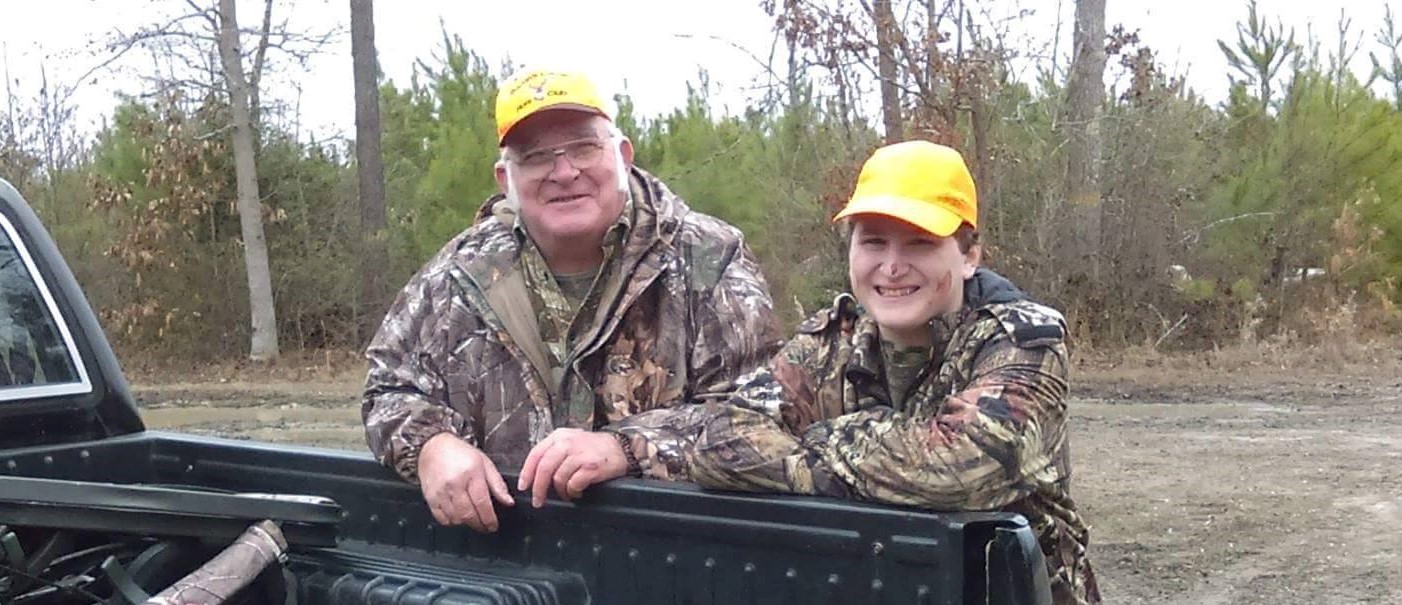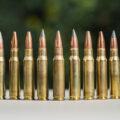I feel incredibly lucky that I had a father willing to take me deer hunting. Those early experiences in the woods with my dad – scouting for signs of game, learning the woods, sitting side by side on a deer stand – shaped the person I am more than anything else. I am forever grateful […]
I feel incredibly lucky that I had a father willing to take me deer hunting. Those early experiences in the woods with my dad – scouting for signs of game, learning the woods, sitting side by side on a deer stand – shaped the person I am more than anything else. I am forever grateful that my father took time to mentor me, connecting me to the outdoors in a way only hunting can. So, let’s explore some ways to pass that on and explore how to get the next generation in the field and why deer hunting for kids matters.
Why It’s Important That Kids Hunt
Getting young people out into the woods is essential to preserving our sport. Deer hunter recruitment is suffering in some parts of the United States. We are seeing a steady decline in licensed hunters. The latest statistics on hunting show only two states added more hunters last year than they lost. As our fathers and grandfathers pass away or age out of our favorite sport, they aren’t being replaced with the same numbers. Currently only about 70 hunters are recruited for every 100 the sport loses.
For those of us who love hunting, these are alarming numbers. Sportsmen (and women), especially deer hunters, are responsible (through license and tag fees, taxes, and general donations) for the majority of revenue used by conservation organizations. As the number of hunters declines, so does funding for habitat and management practices, and wildlife and the environment are at risk.
However, mentoring future hunters isn’t just good for wildlife and the environment, it’s also good for our kids. Hunting is arguably one of the best ways to connect our children to the earth and its inhabitants. It is a fantastic way to build family bonds, encourage healthy activity levels, and develop important character traits like self-control, discipline, patience, responsibility, and respect.
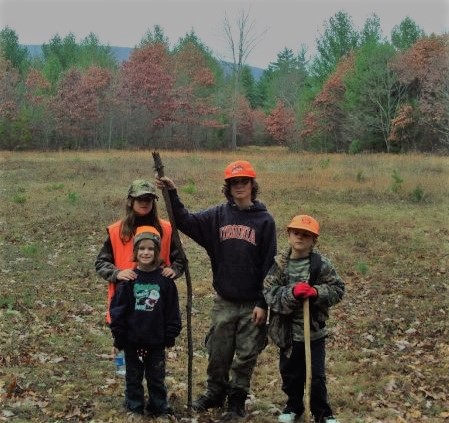
After my first deer hunt, I was hooked for life. However, it wasn’t until I took my own children into the field that I began to appreciate the patience and effort my dad put into making sure my early experiences in the field were positive ones.
Hunting with kids isn’t easy, but it is worth it. Here are some specific strategies to help ensure a young hunter has a great experience. While there is no guarantee your youngster will become a dedicated, lifetime hunter, following these tips will certainly help everyone have more fun.
Plan Your Hunt
Today’s kids often have busy, frenzied schedules. Schoolwork, social engagements, sports, and other extracurricular activities make spontaneous hunting trips nearly impossible. Planning ahead, sometimes months in advance, may be the only way to ensure your hunting trip makes it into a packed calendar. Look at the calendar early, and block off days for deer hunting. Treating your trips like important appointments not only assures there is time for them, but also reinforces their value, for both you and the youngsters.
Special Youth Only Hunts
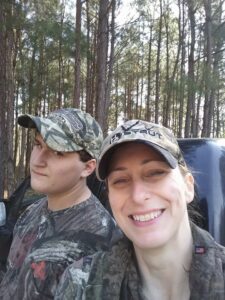
Some of the best hunts for young people are special youth hunting opportunities offered by state and local game departments. These include regional or statewide seasons or days designated for youth hunting only. Other options are special hunts on state park land or local game refuges. Many of these designated youth opportunities happen before the regular season or in areas with low hunting pressure. These low pressure situations often increase chances to see deer, making them excellent for first-time or inexperienced young hunters.
Let the Kids Help
When possible, let the young people be a part of the trip’s planning and preparations. As adults and experienced hunters, we often want to do it all, controlling every aspect of the hunt to provide the best possibility of success. Remember, a “successful” hunt isn’t necessarily one that fills a big game tag. The success of a hunt is more often defined by the fun had and memories made.
Take the kids shopping for gear and supplies. Let them help with the packing process. Take them scouting for game, and let them be involved in setting up camp. These actions will help young hunters feel part of the process.
Deer Hunting for Kids Tips
Provide Proper Equipment
The first deer season I hunted, my dad simply passed down some worn out gear he wasn’t using anymore. He had no ill intentions. Rather, he probably wasn’t convinced I would stick with it, and didn’t want to invest money in gear that he couldn’t use later. (He was certainly convinced I wouldn’t stick with it. The joke is on him.)
Personally, I was just happy to be hunting. However, comfort is an important aspect of a positive hunting experience and helps impatient children sit still longer. Look for boots and pants that fit and are easy for your youngster to walk in. If you’ll be hunting in cold weather, make sure there is enough insulation to keep little ones as toasty as possible. Invest in quality gloves to keep fingers warm and nimble. Consider hand and foot warmers for extra comfort. Find a hat that fits and is weather appropriate.
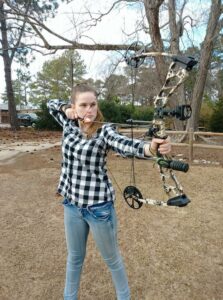
When it comes to a weapon, whether a rifle, shotgun, or bow, make sure you get them one they can handle with confidence and proficiency. Often this means investing in a weapon built just for youth. While this might seem like a huge investment for a novice hunter, there is nothing more frustrating than fighting a large weapon that is too heavy for small bodies to carry or aim effectively. If you want to create a lifetime hunter, make sure you buy or borrow a weapon suitable for your child’s strength and body size.
Practice, Practice, Practice
Shooting well is a developed skill. Few children come out of the womb shooting bullseyes. For most, shooting proficiency comes with practice and experience. Pre-season shooting is also the best way to develop shooting confidence (an important skill when pulling a bead on a big buck, whether you’re 14 or 40). The key to coaching a new shooter is to focus on the basics and stay positive. Get that youngster confident he or she can place an arrow or a bullet exactly where it needs to go. Confidence is like magic when it comes to placing a shot in the kill zone, especially when their young body is pumping adrenaline.
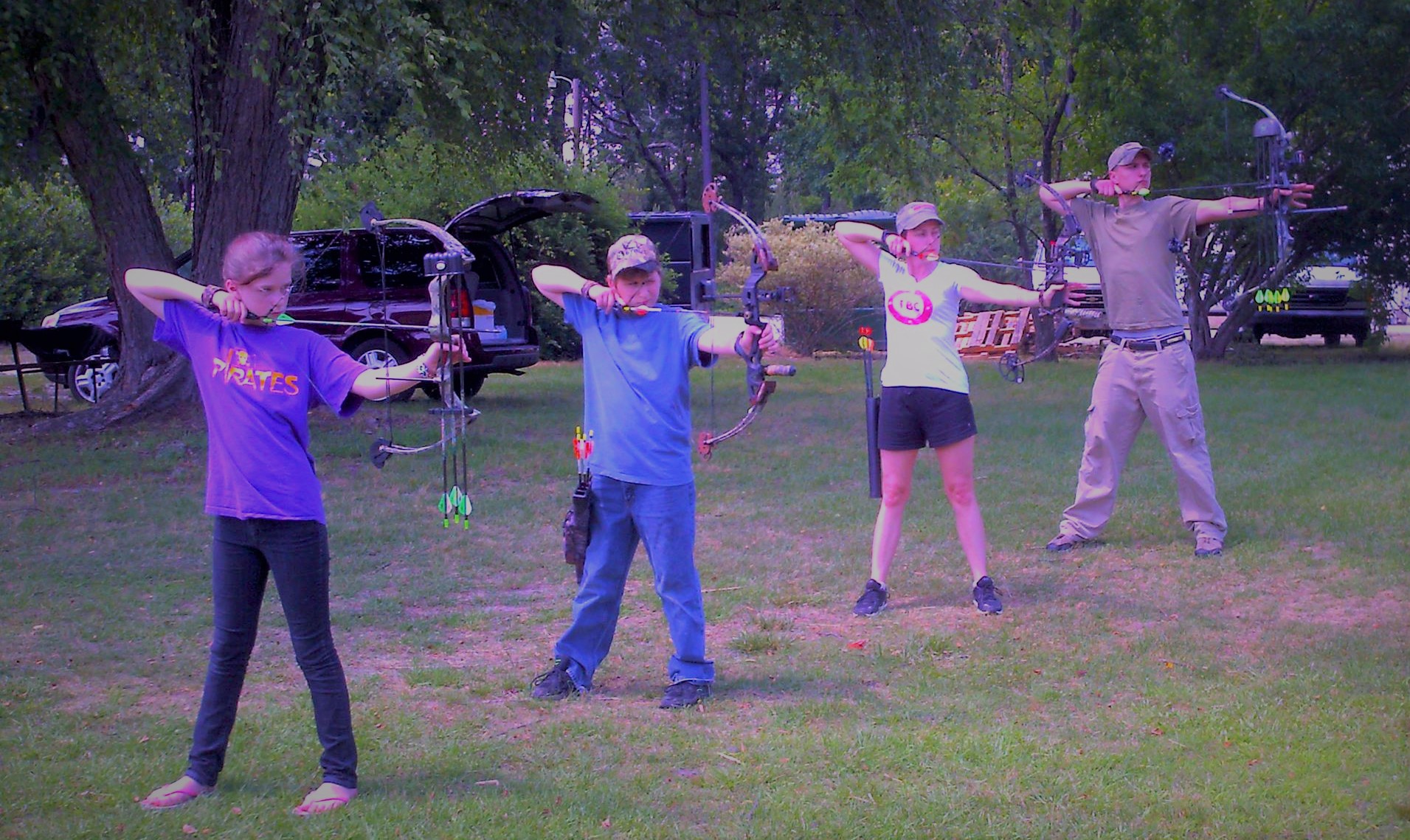
Most kids seem to love the shooting range, so shooting practice might be the easy part. In this time of microwave popcorn and instant gratification, few things deliver faster results than a firing pin connecting with primer. However, shooting is different from hunting. Developing a love of hunting and a respect for life and nature doesn’t happen on the shooting range. That’s something that only happens in the field.
Don’t Ignore Discomfort
While I am more than willing to sit stone still for hours on end in near freezing weather waiting for a glimpse of a monster buck, I’ve been practicing for years. Children, even older ones, have a hard time staying still and quiet for extended periods of time. To keep the atmosphere positive, don’t ignore their basic human needs. Your child may need snacks and potty breaks. If they do, it isn’t the end of the world.
Snack Time
It is hard to sit still when your stomach is grumbling like a freight train. If you are up before daylight for an early morning hunt, make sure you feed young bellies at home, in camp, or in the truck on the way to your hunting spot. But don’t expect breakfast to last forever. Hungry youngsters tend to be whiny, fidgety, and generally unhappy. The secret cure is to carry along some snacks.
My Dad was smart enough to always keep a Snickers bar in his pocket for me when we went hunting. Funny thing is, I still remember the anticipation and excitement over that snickers bar more than I remember most of our hunts.
Take decent food, but don’t stress about keeping it healthy. Peanut butter and jelly works better than sugary candy, but a candy bar is a great way to get energizing carbs in a hungry body fast.
Also don’t forget to bring beverages. Being outdoors naturally dehydrates. Water works best, but a juice box may be more appealing for the smallest outdoorsmen.
Know When To Call It Quits
With young hunters, it’s important to be flexible. If things are getting miserable, know when to throw in the towel. Pushing a hunt too far, especially when your young person is tired and miserable, could sour the experience for them. While you do want to encourage them to be patient and to “sit still just a little longer,” it’s also important to know when they’ve reached their limit.
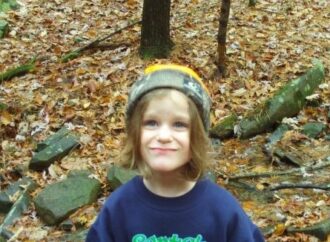
When it’s time to leave, pack up and head back to camp, even if it’s prime hunting time. It is more important to end on a positive note, with a child still eager to head out next time, than to push it too far. Let them know you aren’t upset, and offer to take them again.
The Power of a Good Blind
There are two main reasons a kid will want to leave the woods early. Either they are bored and can’t sit still, or they’re cold. Hunting from a blind can solve both of these problems. A good blind will provide cover, allowing your young hunter some leeway when it comes to movement. It also can provide some meager protection from wind and cold. If possible, hunting from a blind can enhance the hunting experience for both of you.
Ease Into It
Every child is different and it is important to let each one move at his or her own pace. Don’t pressure them into doing something they don’t want to. If your child isn’t ready for big game hunting, it doesn’t mean you have to give up.
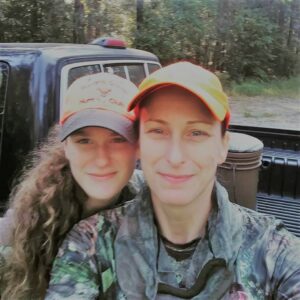
If you have a child hesitant to kill deer, they may still want to join you on a deer stand. That’s okay. They can still be part of the hunting experience without carrying a weapon. My youngest daughter sat with me on many hunts, claiming she “could never shoot a deer.”
She loved to shoot and she loved to go hunting, she just couldn’t imagine combining the two. This year she announced she was ready, and I couldn’t be more thrilled. If I hadn’t been willing to let her tag along, sitting with me for several seasons, she may have never come around. She learned to appreciate the process and the experience and made the decision to hunt in her own time.
Not every child is going to want to go hunting, and that’s OK. Don’t force it. The more someone feels pushed into doing something, the less he or she will want to do it.
Deer Hunting for Kids – Start Small
If you have a child who isn’t quite ready to hunt whitetails, try starting smaller. Many a deer hunter got their start hunting small game like rabbits or squirrels. Hunting small game can produce a lot more action and the success rate is higher than deer hunting. This can be especially appealing for the youngest new hunters.
While too small for deer, a .22 rimfire rifle is also a great way to introduce kids to shooting. Light weight and low recoil make firing .22 long rifle loads easier for small bodies to handle. And a .22 is plenty powerful to take on small game like squirrel.
Celebrate More Than the Kill
Some of my favorite hunting memories have nothing to do with filling a tag. Make sure to celebrate the outdoors with your children. Take time to admire the beauty in your surroundings. Point out songbirds and oddly shaped mushrooms. Identify other wildlife, counting all animal sightings as small successes. Gaze at the stars. Watch the moon or the sun rise. Focus on time spent together and the whole hunting experience. It’s called “hunting” and not “killing” for a reason.
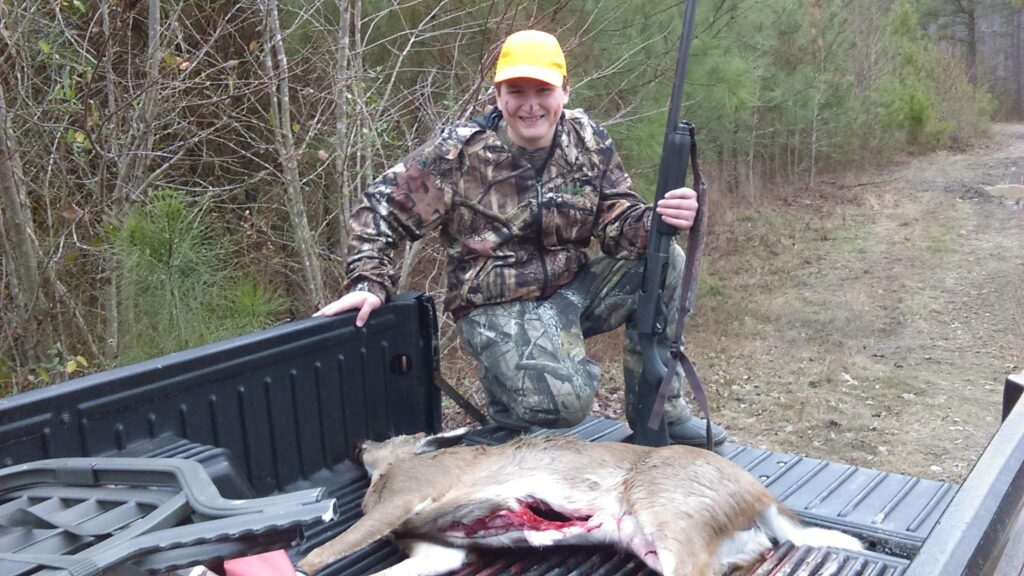
Don’t Dismiss Feelings
It isn’t unusual for a young hunter to feel remorse when they kill their first deer. Don’t shame your child for feeling this way. Even after decades of hunting, I still feel a little sad each time I harvest an animal.
Instead of brushing off a child’s unhappy feelings, acknowledge and validate them. Use the opportunity to remind the child that hunting contributes to conservation and a healthy deer population. Remind them that killing an animal is a way to provide healthy food for the family table.
Conclusion
The most important thing to remember when it comes to deer hunting for kids is to have fun. There are few things more exciting than seeing a young person harvest their first deer, but a “successful” hunt doesn’t require a filled deer tag. Most often the hunt is its own reward.
Passing along the hunting tradition to the next generation is important for keeping our sport alive. However, it is also a fabulous way to instill the character traits of respect, humility, discipline, and self-control in our young people.
